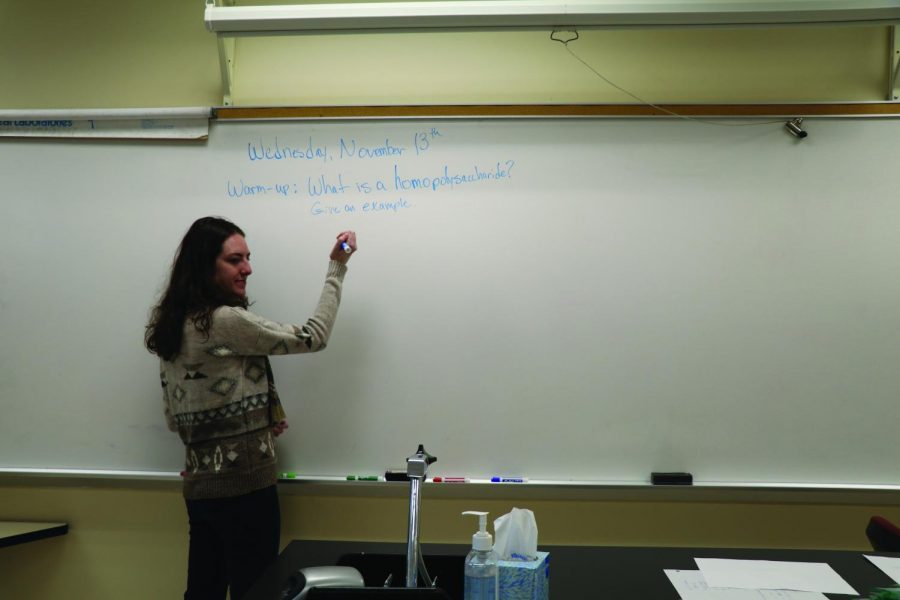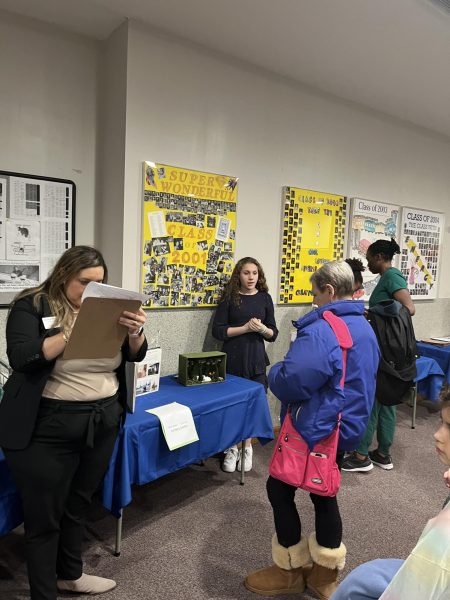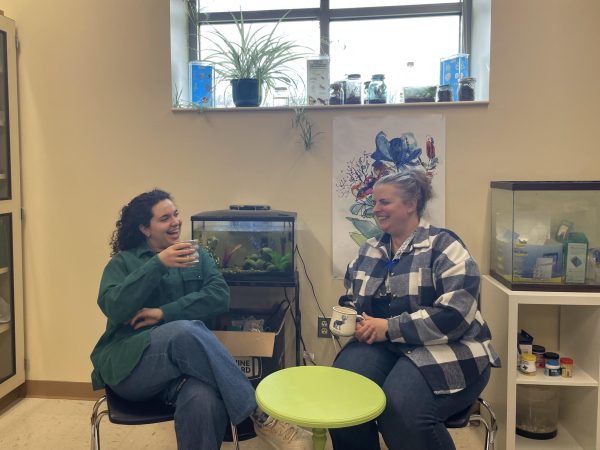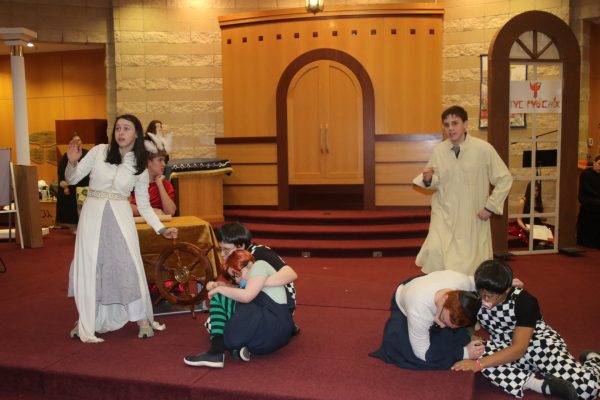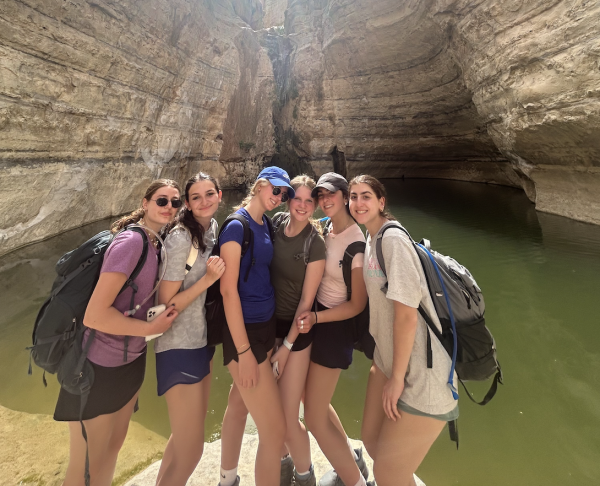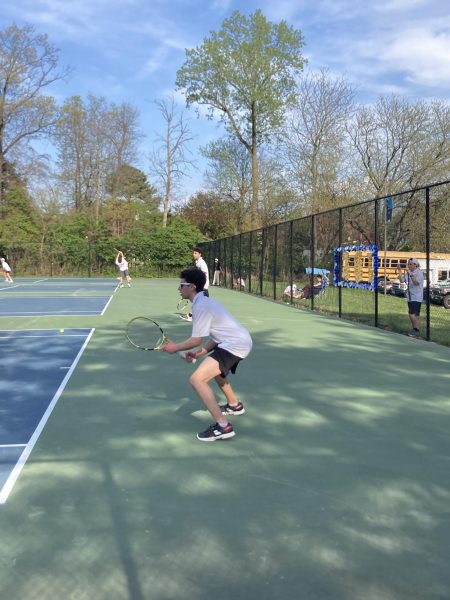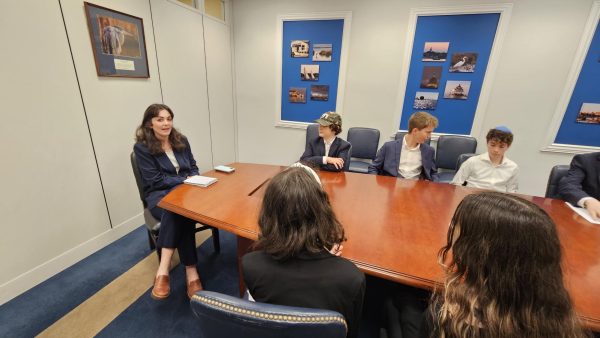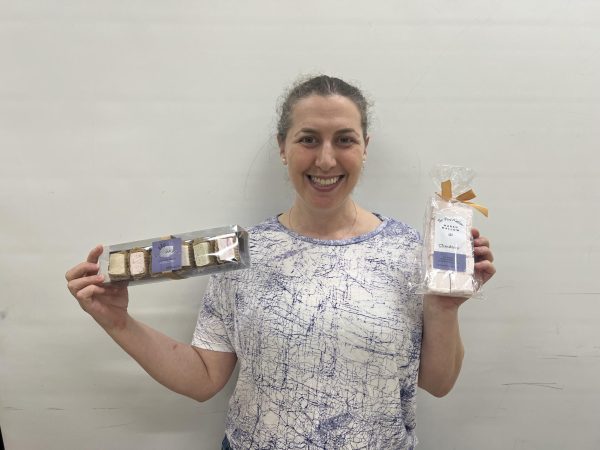Seriously into squirrels: New science teacher’s research paper goes viral
Science teacher Emma Lucore writes down a science warm up for her ninth grade students. Lucore teaches biology.
On a cold Ohio morning in 2015, Oberlin College student Emma Lucore pulled a little red wagon full of equipment through town to research squirrels. Little did she know that her research would make her a media sensation a few years later just as she was starting her teaching career at CESJDS in 2019.
Lucore was in her senior year of college at Oberlin and needed to conduct a senior thesis project. A potential research topic was squirrels; she already knew that birds eavesdropped on other birds’ chatter.
“I was curious about whether squirrels were also eavesdropping on other information that birds said,” Lucore said.
With this question in mind, Lucore knew what her senior thesis project would be. For the next couple of months, Lucore woke up early in the morning and went to the forest to find squirrels.
Once Lucore was in the forest, she played bird noises using a speaker and an MP3 player to observe how the squirrels reacted to the bird noises. If the squirrels were threatened by the noises, they froze or ran. If not, they kept on going about their business.
After a couple of months, Lucore concluded that squirrels do eavesdrop on bird chatter. She also discovered that if birds act calmly, then squirrels also act calmly.
“Squirrels are a neat species and they are common…And they thrive…” Lucore said. “If squirrels benefit from listening to other animals’ conversations then we can assume that there are others who do the same and we can learn from them.”
Lucore was happy with her study’s results and moved on to her next adventure of getting her master’s degree in biology at American University, and then becoming a high school biology teacher at JDS this year.
Some time passed and Lucore got a call from her friend Marie Lilly, who was in her senior year of college at Oberlin. Lilly told Lucore that she wanted to add on to Lucore’s research about squirrels for her senior thesis project.
“We were very excited when we found out that there were patterns in the research,” Lucore said. “I got very excited when we decided to try and publish the research.”
Lucore and her team submitted the research to Plus One Scientific Journal and after a couple of weeks, the journal published the findings. At first, Lucore did not think that her study would become very famous.
“We thought only maybe a couple of blogs would pick it up,” Lucore said.
To Lucore’s surprise, she got many interview requests and her research started to receive widespread attention.
Several publications across the United States, including NPR, the New York Times, the Nova science blog and the Austrian Public Radio, covered Lucore’s study.
Lucore’s new students are all interested in and fascinated by her study.
“Ms. Lucore’s squirrel study is interesting,” freshman Elliot Bramson said. “…I think her study helps her know more things, so she can answer our questions better.”
Lucore said that she learned a lot from the process of conducting her research and having it read by so many people, encouraging her to inspire students about the value of persistence.
“I wasn’t sure that I wanted to be a scientist,” Lucore said. “I think if you’re not having a great experience with science, keep giving it a try because you might find something you really love … and you never know, you might get published.”
This story was featured in the Volume 37, Issue 3 print edition of The Lion’s Tale, published on November 21, 2019.


